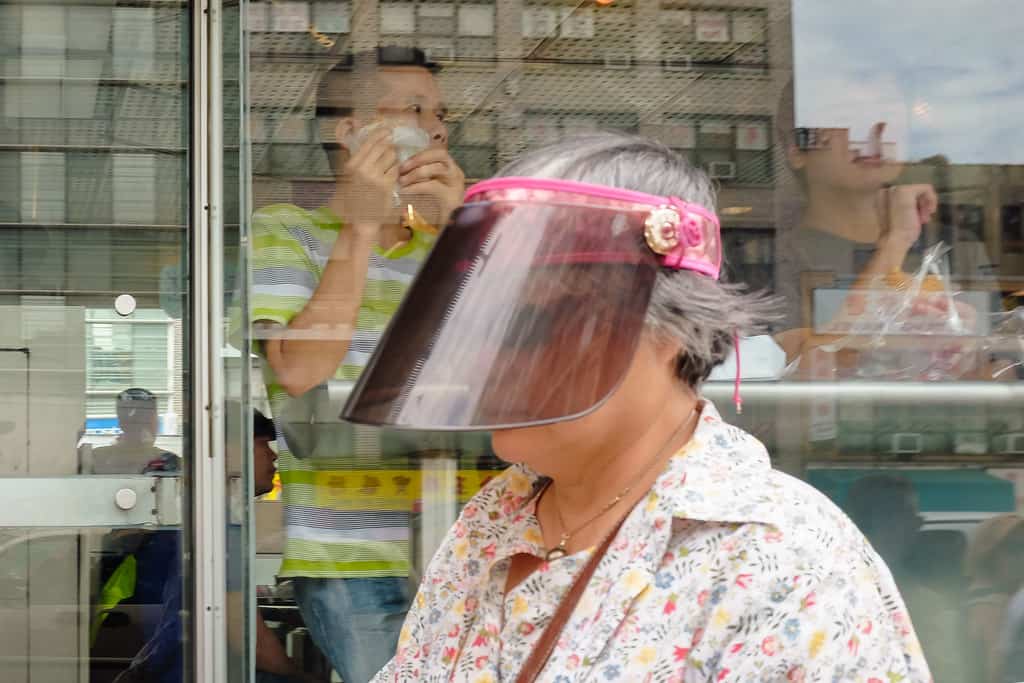
Face shields did not protect people from a COVID-19 outbreak in Switzerland but masks did, according to health officials
pharmafile | July 23, 2020 | News story | Business Services | COVID, Pandemic., coronavirus, covid19, pandemic
Health officials in Switzerland are warning against wearing plastic face shields without masks after a recent outbreak at a hotel showed them to be ineffective.
Infections were reported at a hotel in the Graübunden region, where multiple employees tested positive for the virus. All those who had been infected were only wearing face shields as protection while no one who had worn a mask became infected.
Local health officials believe that shields offer a false sense of security which often makes the wearers take unnecessary risks. Yann Hulman, a spokesman for Switzerland Federal Office of Public Health, told the program 20 Minutes: “The visors do not serve as an alternative to hygiene masks. Visors can be worn with masks to further enhance your own protection.”
This echoes the World Health Organization’s own advice on visors, which states that they can help prevent the virus but only when used in combination with a mask, while the wearer also social distances and washes their hands regularly.
Currently, the UK government recommends visors for hairdressers, barbers and tattooists as a barrier between them and the customer and the Department of Health’s advice states: “There is no requirement for the client to wear any additional protection such as a mask or face covering, when the practitioner is wearing a visor.”
Conor Kavanagh
Related Content

New vaccine research centre opened to prepare for future pandemics
Ministers have opened a new vaccine research centre at the UK Health and Security Agency’s …

Valneva COVID-19 vaccine deal pulled by UK government
Boris Johnson and the UK government have terminated its deal with specialist vaccine company Valneva …

More than 13,000 women report period changes after COVID vaccine
The number of women who have reported changes to their period to the MHRA after …








